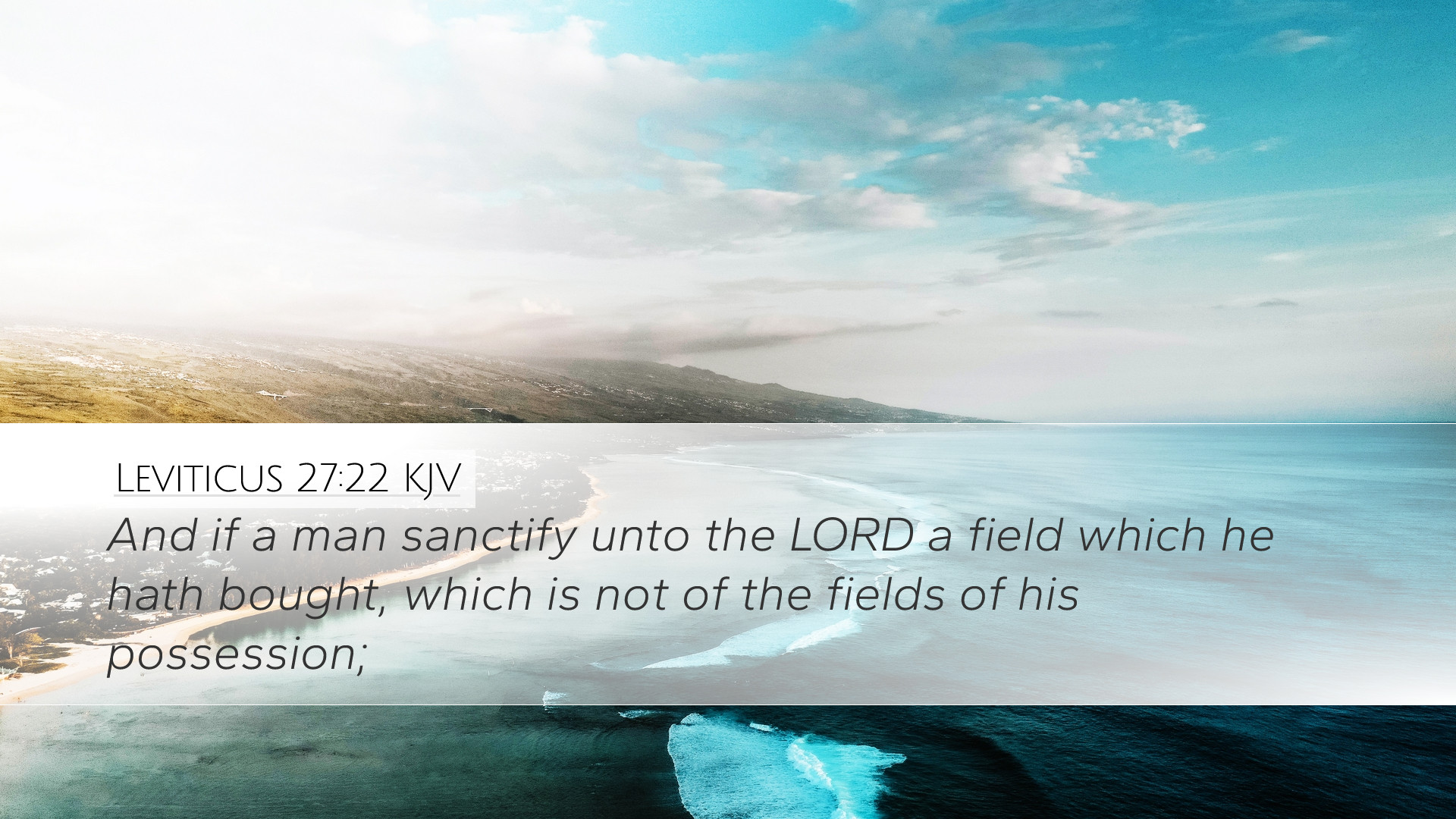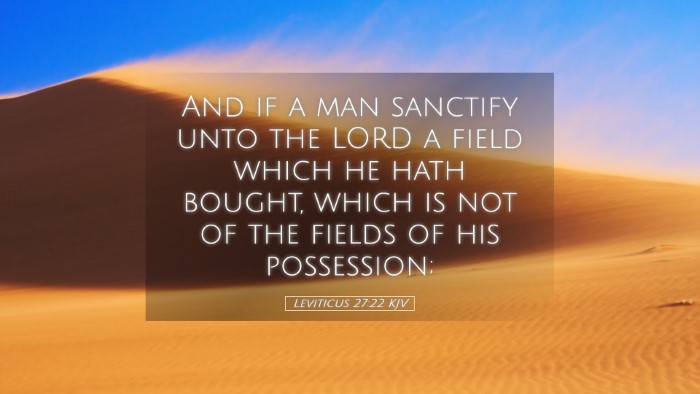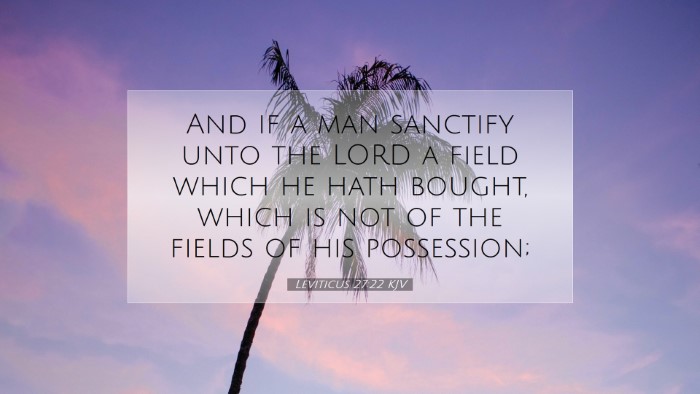Commentary on Leviticus 27:22
Leviticus 27:22 states: "And if it be a field which he hath bought, which is not of the fields of his possession;" This verse is part of a larger context about the valuation of properties and offerings to God. In this commentary, we will explore the insights drawn from several esteemed public domain commentators, including Matthew Henry, Albert Barnes, and Adam Clarke, which will help illuminate the theological and practical implications of this verse.
Contextual Background
Leviticus is often referenced as the book of the Law given to the Israelites at Sinai, establishing their covenant relationship with God. Chapter 27 specifically addresses vows and offerings. Verse 22 refers to buying land outside of one's inherited possessions and speaks to the principles of stewardship and value in relation to God's provisions.
Theological Insights
- Value Assigned to Land: Barnes notes the emphasis on the valuation of property and its relation to the community's spiritual life. The land being purchased represents a step away from inheritance—reflecting a shift in how one relates to God’s blessings.
- Ownership and God's Authority: Clarke emphasizes that all land ultimately belongs to God, as the earth is the Lord's. This understanding leads to a recognition of God's sovereignty over all possessions, whether inherited or purchased.
- Redemption and Sacrifice: Matthew Henry draws attention to the sacrificial nature of property offerings, suggesting that our material possessions should always reflect our relationship with God. This verse reminds the faithful of the importance of redeeming what is technically 'owned' in the eyes of humanity but fundamentally belongs to the Creator.
Practical Applications
For pastors and theologians, this scripture invites reflection on stewardship. Both individual and communal responsibilities come to the forefront in the use of resources.
- Stewardship of Resources: This text encourages a diligent categorization of one’s possessions and their purposes. How does one manage property bought in the secular world while recognizing its divine implications?
- Community Engagement: The discussion around buying fields as a notion of property acquisition leads to an understanding that resources should foster community well-being and reflect God’s character.
- Spiritual Reflection: Pastors can use this verse to challenge their congregation to reflect on their possessions—how do they manage that which God has entrusted to them? Are they seen as stewards who appreciate and acknowledge the transient nature of these goods?
Historical Context and Cultural Insights
Understanding the cultural context of land ownership in ancient Israel is paramount. Fields were not merely economic assets, but lifelines for the families, securing their futures in God’s promise of provision.
- Inheritance and Land: Historically, land was tied to familial structures and represented God’s promise to Israel. The idea of acquiring land that was not part of one’s inheritance leads to reflections on how the Israelites viewed their blessings.
- Covenant Community: Being part of the covenant community meant one was obligated to act in ways that honored both God and fellow Israelite families. How does this translate into modern community-centered living?
Conclusion
Leviticus 27:22 serves as a powerful reminder of the need for faithful stewardship over one's possessions while recognizing the ownership of the Lord over all creation. It invites both introspection and action, particularly in a Christian context where one's life and resources should mirror the generosity of God.
This commentary weaves the insights from Matthew Henry, Albert Barnes, and Adam Clarke, urging readers to contemplate the theological underpinnings of their material possessions and to act as vessels of God's provision within their communities.


